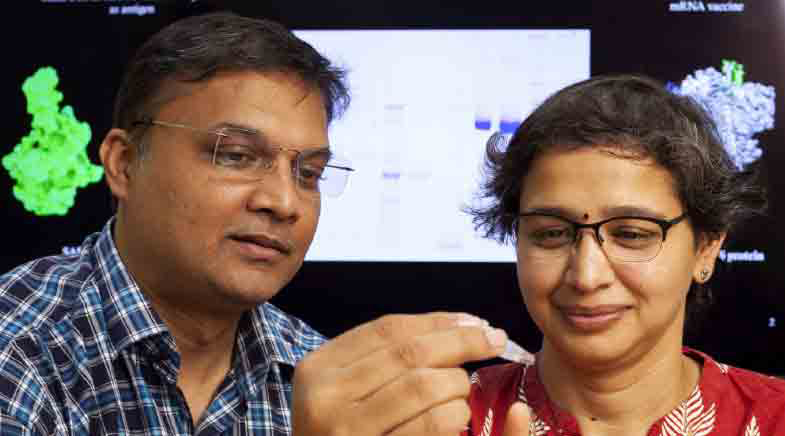The water runs deep
-
- from Shaastra :: vol 03 issue 05 :: Jun 2024

Advanced science is needed to solve the water problem while also preserving ecosystems for future generations.
In the two and a half years of Shaastra's existence, Cover Stories involved themes and trends with a high potential for impact on society and industry. To be chosen for the cover, a story had to have broad appeal and sufficient depth, and had to deal with issues that were connected intimately with the country and the world. We rarely followed the news for our Cover Stories. They were topical but not necessarily newsy. Despite their long-term significance, the events and ideas reported in Shaastra's Cover Stories were unlikely to have been on top of people's minds when we published them.
This summer, we made a departure from this practice. Our previous Cover Story, on cooling technologies, was published in the heat of summer, at a time when people would have been buying air conditioners and fans. The theme of our current Cover Story – water – will always be on top of people's minds, especially in the summer when many parts of the country face severe shortage. Cooling and clean water will remain central concerns of the world as the planet warms up over the next few decades. Our story on cooling went deep into the research that is expected to drive technology over the next two decades. The current Cover Story does so for water.
Our Cover Story reiterates a point that we emphasise all the time: that advanced scientific research is essential for human survival.
Most publications may not conceive a large story on water as a science story. Many of the ideas for improving water availability involve efficient agricultural usage, plugging of leaks in pipes, careful selection of crops, rainwater harvesting, and so on. These solutions are about good management of resources, and invocation of common sense. They are not about advanced science or technology, especially not research that involves the top laboratories of the world or significant investments in the long term.
SCIENCE IS THE KEY
Common-sense measures may be enough in a perfect world where everyone is mindful of their responsibilities and actions. However, they are not so easy to practise in a world where there is rapid economic and social change, migrations are increasing steadily, floods and droughts are common, and farmers are stretched for income. Environmental austerity is hard to observe when livelihood depends on plenitude. So, it is obvious to researchers that the world needs advanced science to solve the water problem while also preserving ecosystems for future generations.
T.V. Jayan's Cover Story on water also differs from our previous ones in another respect: it is deep rather than broad. We have chosen only three areas of research for reporting: improving groundwater, desalination, and atmospheric capture of water. These three are key areas for improving water availability in the future. Groundwater is nature's best storage medium for water, free from evaporation and contamination. Roughly 30% of the world's fresh water is in the form of groundwater, and it forms one of humanity's best options for long-term water security.
However, rapid withdrawals threaten their existence as a clean source. Natural and even current forms of artificial recharge are not good enough to replace the water that is withdrawn every year. Artificial recharge of aquifers does not work on a large scale unless done precisely, after a clear understanding of the geology of a region. Jayan's story describes the recent advances in the technology to map the hydrogeology of a region; these advances are invaluable for improving the life and long-term health of aquifers.
Similarly, nearly 40% of the world's population lives within 100 kilometres of a coastline and so can benefit from seawater desalination. However, current technologies used in desalination are decades old. In fact, the membrane used for Reverse Osmosis in most desalination plants channels technology that is three decades old. These processes create too much concentrated brine that is harmful to marine life when dumped back in the ocean. Jayan's story describes the advances in membrane technology that can make desalination more economical and environment-friendly.
We have used the Cover Story on water to show how advanced scientific research can help solve problems that are primarily driven by poor human habits and choices. It reiterates a point that our regular fare of stories does all the time: that advanced scientific research is essential for human survival.
See also:
Have a
story idea?
Tell us.
Do you have a recent research paper or an idea for a science/technology-themed article that you'd like to tell us about?
GET IN TOUCH














